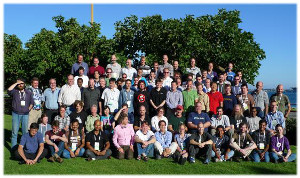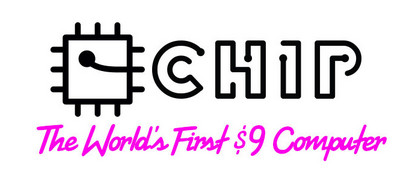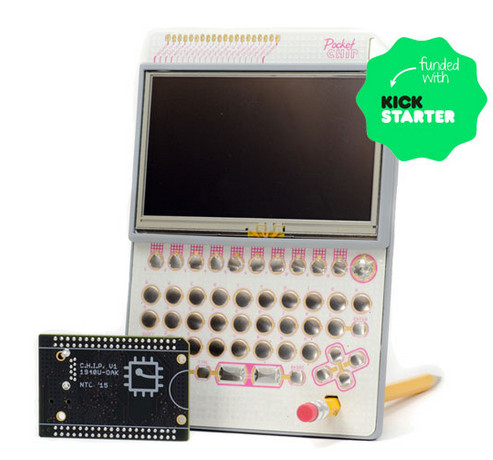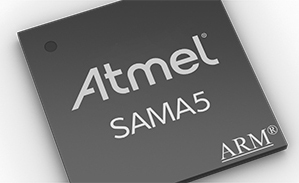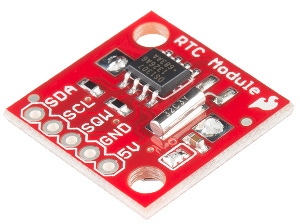 The 4.3 kernel release has been released just a few days ago. For details about the big new features in this release, we as usual recommend to read LWN.net articles covering the merge window: part 1, part 2 and part 3.
The 4.3 kernel release has been released just a few days ago. For details about the big new features in this release, we as usual recommend to read LWN.net articles covering the merge window: part 1, part 2 and part 3.
According to the KPS statistics, there were 12128 commits in this release, and with 110 patches, Bootlin is the 20th contributing company. As usual, we did some contributions to this release, though a somewhat smaller number than for previous releases.
Our main contributions this time around:
- On the support for Atmel ARM SoCs
- Alexandre Belloni contributed a fairly significant number of cleanups: description of the slow clock in the Device Tree, removal of left-over from platform-data usage in device drivers (no longer needed now that all Atmel ARM platforms use the Device Tree).
- Boris Brezillon contributed numerous improvements to the
atmel-hlcdc, which is the DRM/KMS driver for the modern Atmel ARM SoCs. He added support for several SoCs to the driver (SAMA5D2, SAMA5D4, SAM9x5 and SAM9n12), added PRIME support, and support for the RGB565 and RGB444 output configurations. - Maxime Ripard improved the dmaengine drivers for Atmel ARM SoCs (
at_hdmacandat_xdmac) to add memset and scatter-gather memset capabilities.
- On the support for Allwinner ARM SoCs
- Maxime Ripard converted the SID driver to the newly introduced nvmem framework. Maxime also did some minor pin-muxing and clock related updates.
- Boris Brezillon fixed some issues in the NAND controller driver.
- On the support for Marvell EBU ARM SoCs
- Thomas Petazzoni added the initial support for suspend to RAM on Armada 38x platforms. The support is not fully enabled yet due to remaining stability issues, but most of the code is in place. Thomas also did some minor updates/fixes to the XOR and crypto drivers.
- Grégory Clement added the initial support for standby, a mode that allows to forcefully put the CPUs in deep-idle mode. For now, it is not different from what cpuidle provides, but in the future, we will progressively enable this mode to shutdown PHY and SERDES lanes to save more power.
- On the RTC subsystem, Alexandre Belloni did numerous fixes and cleanups to the
rx8025driver, and also a few to theat91sam9andat91rm9200drivers. - On the common clock framework, Boris Brezillon contributed a change to the
->determinate_rate()operation to fix overflow issues. - On the PWM subsystem, Boris Brezillon contributed a number of small improvements/cleanups to the subsystem and some drivers: addition of a
pwm_is_enabled()helper, migrate drivers to use the existing helper functions when possible, etc.
The detailed list of our contributions is:
- Alexandre Belloni (53):
- ARM: at91/dt: sama5d4: fix external trigger property
- ARM: at91/dt: sama5d4: move ADC pinctrl to board device trees
- Documentation: dt: atmel-at91: add clocks to system timer, rstc and shdwc
- Documentation: watchdog: at91sam9_wdt: add clocks property
- Documentation: dt: rtc: at91rm9200: add clocks property
- ARM: at91/dt: at91rm9200: use slow clock where necessary
- ARM: at91/dt: at91sam9260: use slow clock where necessary
- ARM: at91/dt: at91sam9261: use slow clock where necessary
- ARM: at91/dt: at91sam9263: use slow clock where necessary
- ARM: at91/dt: at91sam9g45: use slow clock where necessary
- ARM: at91/dt: at91sam9n12: use slow clock where necessary
- ARM: at91/dt: at91sam9rl: use slow clock where necessary
- ARM: at91/dt: at91sam9x5: use slow clock where necessary
- ARM: at91/dt: sama5d3: use slow clock where necessary
- ARM: at91/dt: sama5d4: use slow clock where necessary
- ARM: at91/dt: at91sam9x5dm: add support for the touschscreen
- ARM: at91/dt: sama5d2: use slow clock where necessary
- spi: atmel: remove useless include
- ARM: at91/defconfig: at91_dt: remove ARM_AT91_ETHER
- usb: gadget: atmel: remove useless include
- USB: host: ohci-at91: move at91_usbh_data definition in c file
- USB: host: ohci-at91: depend on OF
- USB: host: ohci-at91: merge ohci_at91_of_init in ohci_hcd_at91_drv_probe
- USB: host: ohci-at91: merge loops in ohci_hcd_at91_drv_probe
- mmc: atmel-mci: remove useless include
- video: fbdev: atmel_lcdfb: remove useless include
- rtc: at91sam9: properly handle error case
- rtc: at91sam9: remove useless check
- rtc: at91sam9: sort headers alphabetically
- rtc: at91sam9: get sclk rate after enabling it
- rtc: at91rm9200: sort headers alphabetically
- rtc: at91rm9200: get and use slow clock
- rtc: rx8025: remove useless headers and reorder them
- rtc: rx8025: Convert to threaded IRQ
- rtc: rx8025: switch to managed irq allocation
- rtc: rx8025: remove useless probe error message
- rtc: rx8025: use BIT()
- rtc: rx8025: only handle dates between 2000 and 2099
- rtc: rx8025: fix transfer mode
- rtc: rx8025: don’t reset the time
- rtc: rx8025: cleanup accessors
- rtc: rx8025: continue without alarm when irq request fails
- rtc: rx8025: fix rx8025_init_client()
- rtc: rx8025: reset validity when setting time
- rtc: rx8025: remove useless initialization
- rtc: rx8025: fix RX8025_BIT_CTRL2_CTFG initialization
- rtc: rx8025: check time validity when necessary
- rtc: at91sam9: include linux/of.h
- rtc: at91sam9: remove useless include
- Documentation: watchdog: at91sam9_wdt: add clocks property
- watchdog: at91sam9: get and use slow clock
- spi: atmel: remove warning when !CONFIG_PM_SLEEP
- iio: mxs-lradc: Fix temperature offset
- Antoine Ténart (1):
- Boris Brezillon (22):
- mtd: nand: sunxi: fix OOB handling in ->write_xxx() functions
- mtd: nand: sunxi: fix sunxi_nand_chips_cleanup()
- MAINTAINERS: add a maintainer for the atmel-hlcdc DRM driver
- pwm: Add the pwm_is_enabled() helper
- pwm: Constify PWM device where possible
- pwm: Add pwm_get_polarity() helper function
- pwm: Make use of pwm_get_xxx() helpers where appropriate
- clk: change clk_ops’ ->determine_rate() prototype
- clk: fix some determine_rate implementations
- Documentation: dt: atmel-at91: add slow clock to tcb
- ARM: at91/dt: define hlcdc node in at91sam9x5_lcd.dtsi
- ARM: at91/dt: include lcd dtsi in at91sam9x5 dtsis
- ARM: at91/dt: add at91sam9x5-ek Display Module dtsi
- ARM: at91/dt: enable lcd support for at91sam9x5 SoCs
- mfd: atmel-hlcdc: Implement config synchronization
- mfd: atmel-hlcdc: Add support for new SoCs
- drm: atmel-hlcdc: add PRIME support
- drm: atmel-hlcdc: add the missing DRM_ATOMIC flag
- drm: atmel-hlcdc: add RGB565 and RGB444 output support
- drm: atmel-hlcdc: add support for at91sam9x5 SoCs
- drm: atmel-hlcdc: add support for at91sam9n12 SoC
- drm: atmel-hlcdc: add support for sama5d4 SoCs
- Gregory CLEMENT (3):
- Maxime Ripard (19):
- pinctrl: sunxi: Use common functions to change irq_chip and handler
- pinctrl: sunxi: Add irq_chip name
- pinctrl: sunxi: Add custom irq_domain_ops
- ARM: sunxi: dt: Convert users to the PIO interrupts binding
- dmaengine: Add an enum for the dmaengine alignment constraints
- nvmem: sunxi: Move the SID driver to the nvmem framework
- dmaengine: Add scatter-gathered memset
- dmaengine: xdmac: Add scatter gathered memset support
- ARM: sun4i: Add clock indices
- ARM: sun5i: Add clock indices
- ARM: sun6i: Add clock indices
- ARM: sun7i: Add clock indices
- ARM: sun8i: Add clock indices
- ARM: sun9i: Wrap the clock-indices
- clk: sunxi: Add a simple gates driver
- dmaengine: hdmac: Add memset capabilities
- dmaengine: at_xdmac: change block increment addressing mode
- nvmem: sunxi: Check for memory allocation failure
- MAINTAINERS: Update Allwinner entry and add new maintainer
- Thomas Petazzoni (13):
- ARM: mvebu: add missing newline at end of messages
- ARM: mvebu: use armada-380-xor on Armada 38x and 39x
- ARM: mvebu: use DT properties to fine-tune the L2 configuration
- ARM: mvebu: fix description of pwr-sata0 regulator on Armada 388 GP
- ARM: mvebu: update EEPROM description of Armada 388 GP
- ARM: mvebu: update mvebu_v7_defconfig with features needed for Armada 388 GP
- ARM: mvebu: do not check machine in mvebu_pm_init()
- ARM: mvebu: prepare mvebu_pm_store_bootinfo() to support multiple SoCs
- ARM: mvebu: prepare pm-board.c for the introduction of Armada 38x support
- dmaengine: mv_xor: remove support for dmacap,* DT properties
- dmaengine: mv_xor: optimize performance by using a subset of the XOR channels
- crypto: marvell – properly handle CRYPTO_TFM_REQ_MAY_BACKLOG-flagged requests
- irqchip/armada-370-xp: Fix regression by clearing IRQ_NOAUTOEN

